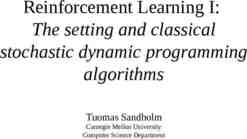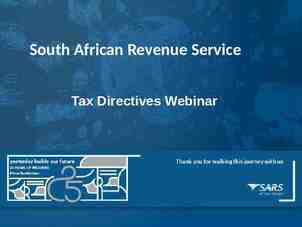Welcome to Child and Adolescent Development Major Orientation to the
24 Slides431.43 KB

Welcome to Child and Adolescent Development Major Orientation to the CHAD major Summer 2020

Requirements for the major

Lower-Division Requirements CHAD major PSYC 100: Introduction to Psychology PSYC 220: Introductory Statistics in Psychology PSYC 230: Research Methods in Psychology PSYC 210: Child Growth and Development PSYC 215: Child, Family, and Community Must have these courses completed with a C or better as prerequisites for many upper-division courses

Intermediate Language Proficiency (0-9 units) This requirement can be met in one of the following ways: Intermediate 200-level (3rd semester) language course with a grade of C or higher or CR. CSUSM Language Proficiency Exam demonstrating intermediate-level language proficiency. AP Language other than English Examination with a score of 3 or higher. IB Higher-Level Language A Literature Exam or Language A Language and Literature Exam with score of 4 or higher. CLEP with the following minimum score: French Level II: 59; German Level II: 60; Spanish Level II: 63. TOEFL or other CSUSM-approved English language exam as a condition for admission to CSUSM. Completion at least 3 full-time years at a high school or university where English was not the principal language of instruction.

Will your Transfer Courses meet the lower-division requirements for the major? Articulation with community colleges for lower-division courses Visit www.assist.org Check with CHAD advisor (Dr. Maureen Fitzpatrick)

Articulated classes from local community colleges CSUSM requirement Accepted community college courses PSYC 100: Introduction to Psychology Any Introduction to Psychology or General Psychology course PSYC 220: Introductory Statistics in Psychology Palomar: PSYC 205 or SOC 205 Mira Costa: PSYC 104 or SOC 104 Mt. San Jacinto: MATH 140 SDCCD Mesa, Miramar, City: PSYC 258 PSYC 230: Research Methods in Psychology Palomar: PSYC 230 Mira Costa: PSYC 205 Mt. San Jacinto: PSYC 124 *must have lab component (2017 and later)

CSUSM requirement PSYC 210: Child Growth and Development Accepted community college courses Palomar: CHDV 100 Child Growth and Development Mira Costa: CHLD 113 Child and Adolescent Growth and Development Mt. San Jacinto: CDE 110 Child Development San Diego City: CHIL 101 Human Growth and Development PSYC 215: Child, Family, and Community Palomar: CHDV 115 Child Family and Community Mira Costa: CHLD 210 Child Family and Community Mt. San Jacinto: CDE 125 Child Family and Community San Diego City: CHIL 141 Child Family and Community

CHAD Required Core Courses Course # PSYC 331 Course Name Inf & Child: Theories and Research PSYC 349 Adolescence: Theories and Research CHAD 370 PSYC 395 (*PSYC 100, 220, 230) (*PSYC100, 220, 230) Risk and Resiliency in Child/Adolesc (*PSYC 100, 331, 349, and Psyc 328 or CHAD 339) Laboratory in Developmental Psychology (*Psyc 100, 220, 230, and 331 or 349) CHAD 491 CHAD 496 Child, Adolesc and Social Policy (*PSYC 210, 215, 331, 349, and 395 or CHAD 496; Senior Standing) Observation and Assessment Lab (*Psyc 100, 220, 230, 331, and 349) Total 18 units

CHAD Upper-Division Requirements Cluster A: Atypical Child and Adolescent Development Cluster B: Contexts of Child and Adolescent Development Cluster C: Understanding Others Cluster D: Intrapersonal Development Cluster E: Researching/Working with Children and Adolescents Total: 15 units

For more information CHAD Program website: http://www.csusm.edu/chad Click on Program Requirements link: CHAD student handbook CHAD majors worksheet for course requirements

Minimum Grade of “C” You must earn a grade of “C” or higher in every course in order to count it toward the major. If you earn a “C-” or lower you will have to repeat the course

Breadth Requirement The course you choose for your UDGE area DD (social science) course cannot be a Psychology or CHAD course – it must be a course outside of our department.

CHAD Background Check Requirement CHAD 496 Observation and Assessment Lab is a required course that will take place at the Center for Children and Families (CCF) on campus or another setting that requires background checks. Fingerprinting and background check through LIVESCAN Tuberculosis Test (TB) Proof of MMR immunity Tdap (tetanus, diphtheria, and pertussis/whooping cough) immunization Flu shot (between August and December or submit a waiver form if the flu shot is declined)

The background check process must be completed no later than 3 weeks before the start of the semester in which a student enrolls in CHAD 496. Documentation is provided to the Center for Children and Families (not the Psychology Department) See http://www.csusm.edu/chad/background-c hecks/index.html for more information

Setting Yourself Up for Success Your courses may be harder and require more reading, writing, and studying than your classes at community college. Our expectations may be higher than you have experienced so far. Don’t expect study guides or extra credit to bail you out! You need to take responsibility for your education.

Setting Yourself Up for Success You will need to adjust your time budget and your priorities to succeed in upper division classes. Consider taking fewer units. Allow more time for homework and studying. Choose your courses carefully to avoid taking the most difficult courses at the same time. Reduce your hours at work.

A Recommendation for Working while in College Hours worked per week Recommended units 40 3 30 6 20 9 10 12

Additional Opportunities: Go beyond the basic requirements!

Student Organizations Open to CHAD majors Psychology Student Organization Open to all interested students Psi Chi: International Honor Society in Psychology Overall GPA in top 35% of class (usually between 3.1 and 3.25) Minimum GPA 3.0 in psychology course work Great opportunities for involvement with other students and faculty members Good for networking Good on your resume

Student Research Fair In April/early May we host a student research fair Keynote speakers are major figures in the field Students present their research in posters and papers Career panel Graduate program panel And much more! Get involved in research fair planning!

Faculty Research Labs Get involved in research with faculty members and other students Students present papers, publish, etc. Consider field placement, independent study Graduate School Bound? Faculty members need to know you beyond just your courses to be able to write a strong and detailed letter of recommendation

Department Faculty A description of each faculty member’s background and interests is listed in your handbook We have a commitment to working closely with students; we like to work with you Find faculty whose interests are related to yours and get to know them

Registration Many courses are already full and closed Crashing courses Get yourself on the waitlist for courses you want, and monitor your position. Faculty tend to honor the waitlist unless there are unusual circumstances.

Questions?






